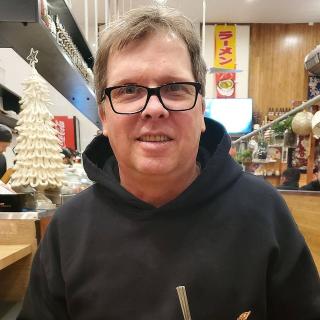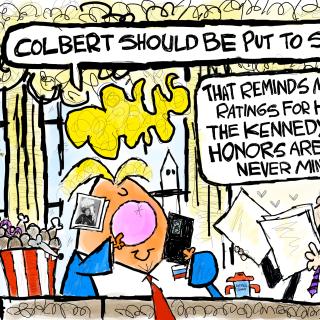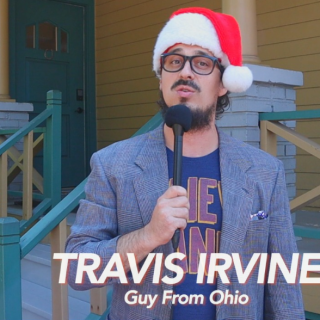Advertisement
The film is inspired by a group of kids living in a suburb of Paris who are cross-bituming and called themselves “Dirty Riderz Crew.” The engines are very strong and what they do quite brutal. They cross each other on lines that are narrow two-way roads. We've to understand the environment, its rules, and its philosophy.
What's this practice? Why do they do it? Who are these young people? That's where we meet the character of Julia (Julie Ledru), who responded to a rather intimate desire to see this dream of joining a community come true. The character of Julia is a perfect example. It surprises us because it escapes the fixity of a single, uniform representation. Her face changes all the time, her outfits, her traits. She performs multiple figures, navigates between genres, codes, social environments.
At the beginning of the film, it’s difficult to follow her, to pin her down. She escapes, eluding a static image of her. She's driven by a passion, by an irrepressible desire to live differently and elsewhere, to redraw horizons. The whole question of transfeminism, of disidentification, is to get out of gendered codes, of normalized identities with the idea of the invention of another subjectivity. Julia is a little bit in all that, she even frees herself from a certain readability.
You could see her as an androgynous girl or a lesbian, but she eludes these representations. She straddles the borders and that’s what she ends up bringing to this community by coming in through a sort of opening created by the death of a member of the community. She occupies a vacancy, she lodges herself into this hole, which is also a place of possibility too.
Stereotypes are imposed by people who look at things too fixedly. It's good when the lines move. Julia is the stranger who defies the boundaries, the radar of assignments. She makes it difficult for us to read her. Violence, for example, is always treated from the point of view of the character's. Subjectivity, that's why it eludes assignment. For example, Manel (Junior Correira) violently rejects Julia because his image as a very gifted rider has been weakened by an accident, but also because he refuses to let a young woman come to help him. He's violent because he’s defending himself, because he’s frustrated, because he’s ashamed. He reacts strongly because he doesn’t understand that gender representations can be reversed. At the same time in "Rodeo" Julia's femininity is constantly questioned by the boys, even if she steers away from flirtatiousness and all the gender-related clichés.
It feels like her body is a kind of envelope that can be dressed in a soccer jersey, a t-shirt from the day before, that can be in a bra, naked. She remains a subject body. And her playing around with appearances to help her in her quest makes her fluidity convincing. It's as if her body existed and didn’t exist. There's a form of metaphysics in it, both material and immaterial. It's a body that struggles among other bodies that are different from hers. "Rodeo" is about a character trying to find her place in this sad world. She's looking for a motor, a raison d’être. This motor, she finds it in her bike, but also in theft, a grand heist that she does just for the beauty of it, and for recognition.
There's a floating between two love stories and that's very true-to-life. We must tremble with the character of Julia to understand her. In this crazy and oppressive mazelike circuit, what keeps the thread of the discontinuous narrative going is this encounter with Julia.
The character of Julia is very much inspired by the paranoid figures of the cinema, by unappealing, drug-addled characters in the grip of sometimes self-destructive existential crises. It’s also a transcendence, as she rises from her ashes and her specter recedes into the prospect of another world.
Julia enters the crew because she takes Abra's (Dare Nsaman) place. She finds herself haunted by him. Their first meeting leaves its mark. He tells her “you fly.” it’s the call of life and death, as something that is part of the same reality. He says to her “we meet on the other side of the line.” From this meeting, Julia is almost already dead. It’s like a spell that's cast. The force of the natural elements is omnipresent. In the sound, Abra is materialized by the wind of the speed, the current of air which knocks against the door of the garage, by the blades of the fan, then of the helicopter which we hear in the dreams. Julia is a kind of Phoenix.
There’s Ophelia (Antonia Buresi) who gives Julia all the trappings of femininity to go and deceive the world and perform her gender. There's the knife which is a tool that calls for revenge but also emancipation. There's the piston, then the bequest at the end as tools of a possible liberation. For Ophélie, the injunction is too powerful, she's subjugated and too settled in her life to support this choice.
The character of Mous (Ahmed Hamdi), is at the same time close and familiar to Julia, and at the same time he calls her a “charo de cité,” a thief. He embodies how ambivalent fascination can be. He distrusts Julia, but he admires her. He's the first to support her when she enters their garage for the first time. "Rodeo" is also a system film. However, within this system, the characters are reduced to the masculine image they convey. Each one exists individually and collectively and escapes any assignment to an identity. At the end of the film, we learn that Manel offers a “Yamaha WRF” to his sister Kaïs (Yannis Lafkai). She's a character in her own right, a warrior who's a bit of an outsider to this environment, an unusual heroine. We discover that the character is not locked into a circuit of thought, that he's not categorically sexist.
"Rodeo" is a sur-naturalist film. It goes beyond the naturalism of "Au Loin Baltimore," in its relationship to color, narrative and direction. The film is shot in a cinema scope format (2:39), like the classic westerns. This gives a spectacular strength to the documentary look that the film also wants to preserve.
The film wants to make people physically feel the bodies carried away by the speed and adrenaline of bike-life. To show the brutal side of it, the relationship to death, to the asphalt. It's about the exploration of this closed universe, a place cut off from the ordinary world. We plunge ourselves into a closed, secure, very masculine and very codified environment. The clients are mainly men, cops, former soldiers or civilians who are learning to use their weapons. We've references to Raoul Walsh's "White Heat."
For some years now, there has been a lot of talk about deconstruction, about deconditioning, especially of women in relation to what's expected of them. How to become again the subject who has a gaze. How to get out of the injunctions conditioned by the dominant male gaze? How not to reproduce the violence of certain power relationships? The phenomena of deconstruction are forms of inner revolution that are a big driving force for me, that make me think about politics in a very concrete way. It’s an incredible basis on which to build a world that would give more place to diversity, to how many identities there are out there and how they’re represented, to non-binarity, but also to the unexpected, to the beauty of monsters, to the incongruous, to the strange and to eclecticism.
The life we share, the struggles that go through it, the discussions and the various commitments around the questions of feminism, anti-racism have influenced our reflection with regard to the story under construction. We've a rather natural approach to the dialogues in certain sequences, it refers to the acting. It begs the question of incarnation, of the carnal, emotional, spiritual dimension which will nourish the words, we've to keep them simple to give them that space. It's a space where we're interested in intervening, the relationship to rhythm, the scansion, the subtraction of the unnecessary. We understand the world better when we tremble with it. For the world trembles in all directions.
Opens on April 7 at Gateway








